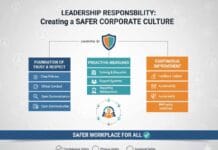
Today’s most effective business leaders rise above spreadsheets, profit margins, and traditional organizational charts. They bring something deeper to the table—purpose. A leader guided by ethics and vision doesn’t just manage teams—they inspire change, build cultures of trust, and make decisions that echo far beyond the boardroom.
St. Thomas University, a respected institution, has long prioritized ethical leadership as central to professional success. The university offers a range of advanced programs. Among its most influential offerings is the Doctor of Education (Ed.D.) in Educational Leadership—an online program designed not only for educators, but for professionals across sectors who want to lead with heart, strategy, and impact.
- Redefining Business Leadership Through Purpose
Purpose-driven leadership redefines what it means to run a business in today’s evolving landscape. It means anchoring decisions in core values, building cultures of accountability, and treating ethics as a central part of performance—not just a compliance checkbox. Business leaders with purpose consider how every choice impacts their employees, communities, and industries. They build sustainable organizations that prioritize long-term trust over short-term wins. These leaders don’t separate profitability from responsibility—they see them as intertwined. Purpose provides clarity in chaos and direction in uncertainty. It’s more than a moral stance; it’s a strategic advantage for those ready to lead differently.
- The Ed.D. Advantage: Shaping Ethical Leadership from the Inside Out
Ed.D. graduates bring something unique to leadership tables: a combination of academic rigor, practical insight, and deep self-awareness. Unlike traditional business degrees, the Doctor of Education in Educational Leadership from an institute like St. Thomas University emphasizes organizational transformation, systemic thinking, and moral clarity. It challenges professionals to see beyond their own roles and ask, “How do I lead people to their highest potential?” Online leadership programs now make this degree more accessible than ever, allowing aspiring leaders to balance their careers with advanced studies.
After entering the program, students can choose from three dynamic concentrations: Administration, Digital Instruction and Distance Learning, and Sports Administration. Each path equips graduates to lead in diverse contexts—whether directing a school system, innovating in e-learning platforms, or managing sports organizations with integrity and vision.
- Visionary Thinking: A Core Competency for Ed.D. Leaders
Vision isn’t just about seeing the future—it’s about shaping it. Ed.D. graduates train to recognize patterns, leverage data, and anticipate challenges long before they arrive. But more importantly, they develop the courage to act on their convictions. A visionary leader doesn’t wait for others to adapt; they set the pace and inspire others to follow. They integrate innovation with ethics, ensuring their strategies serve people—not just profits. In businesses where uncertainty rules the day, these leaders hold steady with clarity and confidence. Their vision isn’t vague—it’s bold, actionable, and deeply connected to the well-being of the people they serve.
- Leading Change with Clarity and Confidence
Change can feel disruptive, but for Ed.D.-level leaders, it’s a chance to drive progress. These professionals don’t just accept change—they guide it. With a solid foundation in leadership theory and real-world experience, they know how to unify teams, manage resistance, and turn transitions into breakthroughs. Their approach is intentional: they gather input, communicate clearly, and keep the mission front and center. Clarity is their greatest tool. They ensure everyone—from entry-level staff to executive stakeholders—understands the “why” behind each shift. This ability to lead change smoothly and ethically sets them apart in any industry or organizational context.
- Building Cultures of Integrity and Accountability
Organizational culture doesn’t happen by accident. Purpose-driven Ed.D. leaders design cultures where integrity isn’t just encouraged—it’s expected. They set the tone through transparency, fairness, and consistency. These leaders use their influence to promote accountability at every level, from the executive suite to the front line. When something goes wrong, they address it head-on instead of deflecting blame. When things go right, they lift others up. This creates workplaces where people feel safe to innovate, make mistakes, and grow. Trust becomes the norm, not the exception. That trust, built over time and backed by action, becomes the foundation for lasting success.
- Empowering Teams Through Servant Leadership
Servant leadership isn’t just a buzzword—it’s a way of operating that puts people first without compromising results. Ed.D. graduates learn how to lead by listening, supporting, and empowering rather than controlling. They understand that strong teams don’t form under pressure or micromanagement. Instead, they thrive when individuals feel heard, valued, and encouraged to take initiative. These leaders intentionally remove barriers and provide resources so their people can do their best work. By focusing on the growth of others, they build loyalty, fuel innovation, and strengthen morale. Their approach fosters resilience in teams and leads to deeper, more meaningful organizational outcomes.
The Ed.D. in Educational Leadership produces more than credentialed professionals—it shapes ethical, visionary leaders who drive progress with purpose. These graduates bring unique skills to the table: they inspire trust, lead with empathy, and balance data-driven strategy with moral clarity. In a world that needs courageous leadership more than ever, they step forward not just with knowledge, but with wisdom. Their work doesn’t end when business hours do. They lead with conviction, influence with integrity, and serve with heart. Whether in boardrooms, classrooms, or communities, they redefine leadership for a new era—one where purpose isn’t optional, it’s essential.





